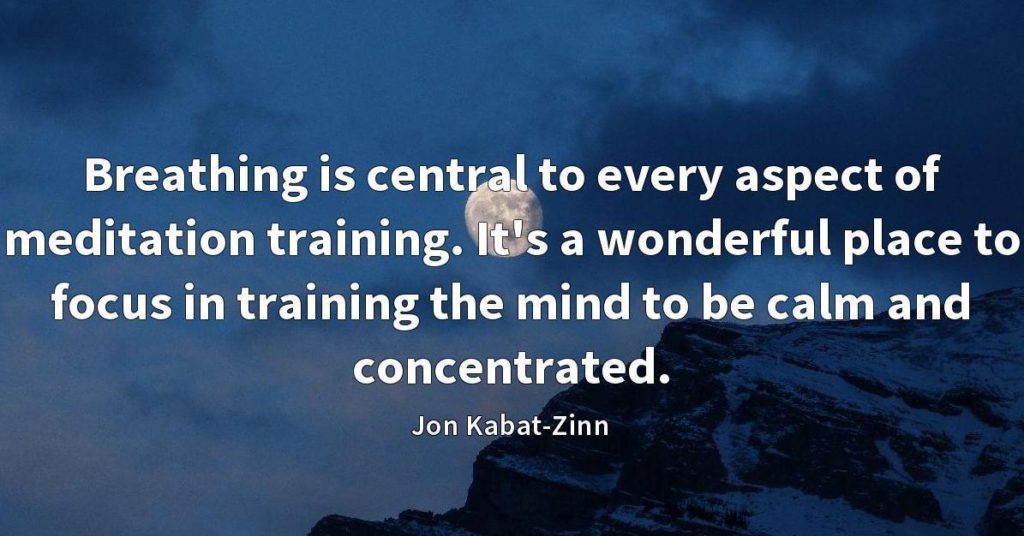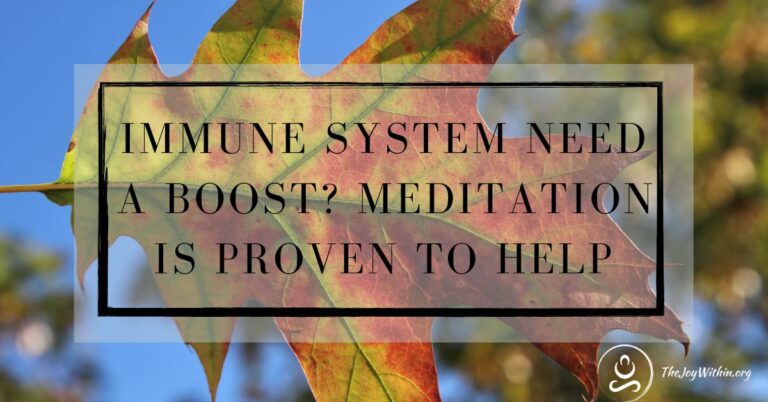Vipassana is a meditation practice that has skyrocketed in popularity over the last few years. While the tradition dates back to ancient times, the modern technique was popularozed and brought to the West by S.N. Goenka.
The core Vipassana technique involves disciplining your mind to focus on the single point of entry and exit of air through the nostril as you breathe in and out. After several days meditating in this way, other pranayama exercises are introduced, with the aim of bringing the practitioner to a state of total peace, inner joy, and enlightenment.
In this post, I’ll outline 8 of the most important benefits of Vipassana meditation.
See our beginners’ guide to Vipassana meditation to learn more to learn more about how to practice this style of meditation, or try this guided meditation using the Vipassana technique.
What Are The Benefits of Vipassana Meditation?

1. Know Yourself
The ultimate goal of Vipassana is self-liberation. This is a state of total awareness and recognition of your true self.
According to the Vipassana teachings, awareness of your true nature arises when you quiet the mind, and transcend the ego’s attachment to the physical world, including your current identity and physical body.
As you release the attachments, you empower yourself to realize the truth of your essence, which is unconditional joy, bliss, love, and light.
2. Quiet The Mind
In order to realize this heightened state of self-awareness, you must first learn how to quiet the mind.
This does not happen during a single meditation, nor can it truly happen when you are embroiled in the trappings of the world. For this reason, Vipassana encourages daily disciplined practice, coupled with long silent meditation retreats.
During the first few days of your practice, you may find that the mind seems to go into overdrive, rather than settle down. This is common, and is in fact simply the act of becoming aware of the chaotic thoughts that are always with you.
As you maintain your focused practice, however, this flurry of thought should begin to subside.
If you’re new to meditation, you might want to try our beginner’s course to quiet the mind.
3. Discipline Your Thoughts and Improve Concentration
The core Vipassana technique encourages you to develop a keen focus on the tip of your nostril. As you begin this practice, you will find it very difficult to maintain your focus.
Do not judge yourself when this happens, but simply bring your awareness back to your breath, every time that you notice your mind has wandered.
As you consistently repeat this process, you will build strength and discipline of mind. You will begin to realize that, in the course of day to day life, we are rarely truly focused.
By emphasizing this concentration, you hone the mind’s ability to think and see clearly.
Related Post: How To Focus During Meditation.

4. Empower Resilience, Non-Judgment and Detachment
Another benefit of Vipassana meditation is it’s ability to empower you. As you begin to discipline the mind, you also strengthen your resilience – your ability to bounce back in the face of challenge.
This strength stays with you long after your meditation practice ends, and can work wonders to help you overcome obstacles in your day to day life.
Along with this resilience comes a sense of detachment and nonjudgment about the world around you. You start to realize that the obstacles in front of you in the physical world, are only problems of awareness. It is only your perspective – your ego-mind – that makes them problems.
5. Improve Your Physical Health
When talking about the health benefits of meditation, many people focus on mental health, and overlook the profound physical benefits meditation can have on your body.
Vipassana is especially good at this, since Vipassana practitioners are encouraged to change their diet, eating a plant-based diet during the programs, and dramatically reducing the number of calories consumed in the evening.
New meditators are encouraged to snack lightly on fruit instead of eating dinner, and experienced meditators are encouraged to eliminate all meals after midday.
Even during the earlier meals, a lighter diet is encouraged. All of this translates into physical health improvements, from weight loss to reducing chronic disorders and risk for heart disease.
In many people, Vipassana has also helped to reduce unhealthy cravings and addictions, including alcohol and smoking addictions.
Read more about the health benefits of meditation.
6. Cultivate Inner Peace
One of the most profound benefits of Vipassana is the ability to cultivate a feeling of inner peace. This peace rests at the core of your being, and the process of quieting the mind and detaching from the world around you leads to a greater awareness of this peace.
This is because as your mind shifts away from the ego’s constant demands, it begins to appreciate the world with new eyes, feeling a sense of deep gratitude and love for all that is.
Without your individual limitations and preoccupations, you can begin to see that there is a constant flow of peace, all around you.
7. Discover True, Unconditional Joy
Along with this sense of inner peace comes an undeniable feeling of unconditional joy. Tapping into this bliss is one of the primary goals of a Vipassana practice.
While at first reaching this state can take time, with practice you can learn to access your inner joy on command.
You can try this exercise to increase your happiness to get a taste of the feeling I’m talking about.
8. Live In The Present Moment
Last but certainly not least is the ability to live in the present moment.
Vipassa is one path to reach moksha, or self-liberation, and it follows what is known as “The Middle Way.” While there is no ‘right’ or ‘wrong’ path to follow, the aim is always to raise your awareness and become more mindful of your thoughts and experiences in the present moment.
When you center into The Now, you live from a state of joy, bliss, love, and light.
Read more about how to be present and live in The Now.





65 year old man interested in practices to cultivate mindfulness, embodiment, flexibility
I learned Vipassana Meditation few yrs back. I think, Its a purest form of mediation and we should learn Vipassana mediations through attending the Vipassana camp(Not through Internet/Youtube). Here is official website : https://www.dhamma.org/en/index
How can i concentrate and i want to do vipasana
It takes practice. If you can focus for just 1 second, you can expand that to two seconds, and then continue to increase your focus from there. You might also try these exercises: https://thejoywithin.org/meditations/4-meditation-exercises-to-improve-concentration-and-focus-your-thoughts
I am doing Vipasana meditation for 2months. Suddenly I developed huge focus and concentration with headache at frontal area. I am thinking whether to stop the practice or continue doing it.
It’s not uncommon to have a little bit of a headache as you may not be used to the sensation of energy in your third-eye center. If it is mild, keep practicing and it will usually subside. If not, notice if you are furrowing your brow while meditating. Sometimes our “deep focus” causes us to exert extra effort when we are trying too hard to concentrate, rather than relaxing into the breath.
I read this article. This article is Very informative. It is a pleasure to be read. Thank you for such a Beautiful content.